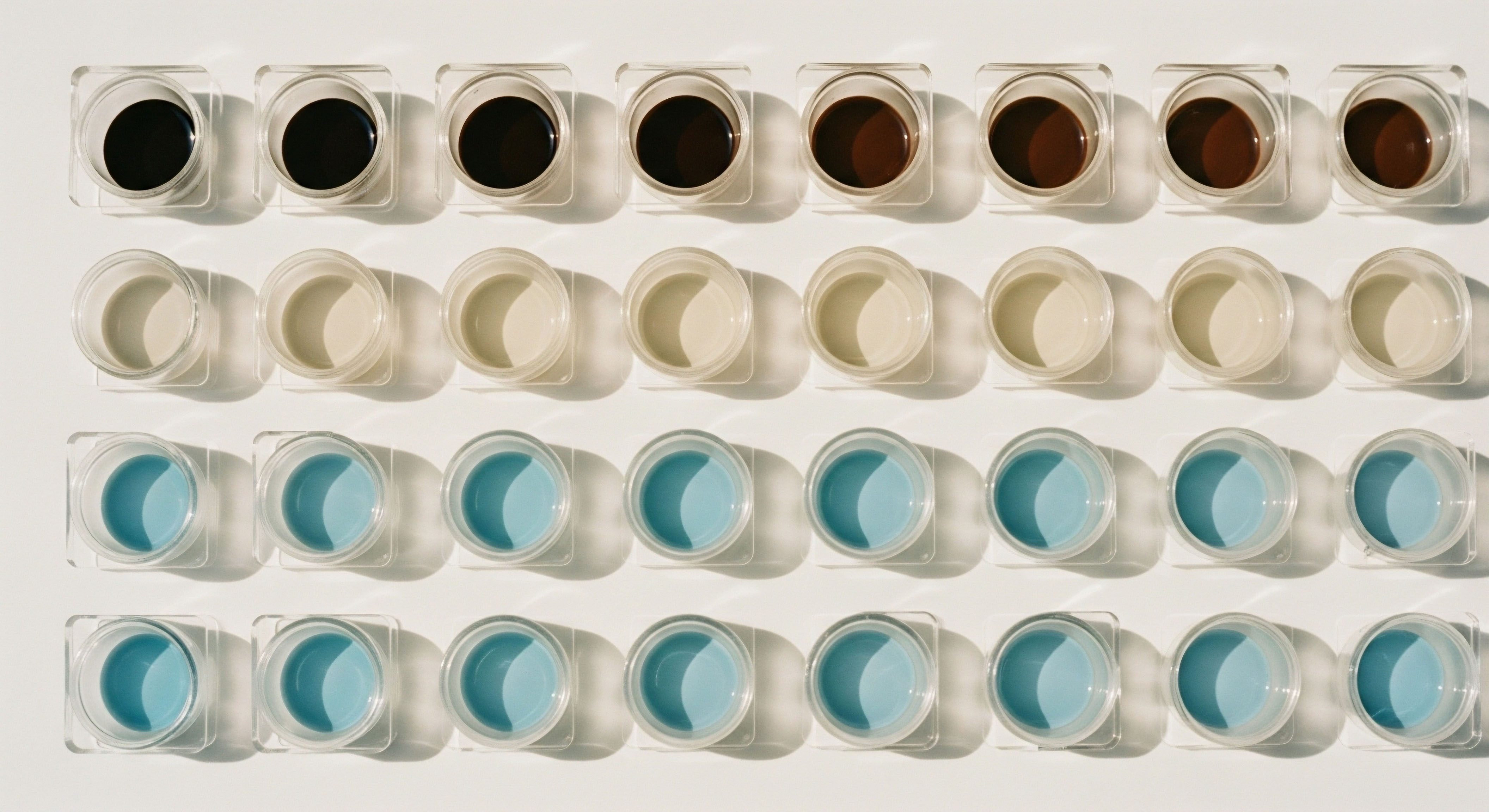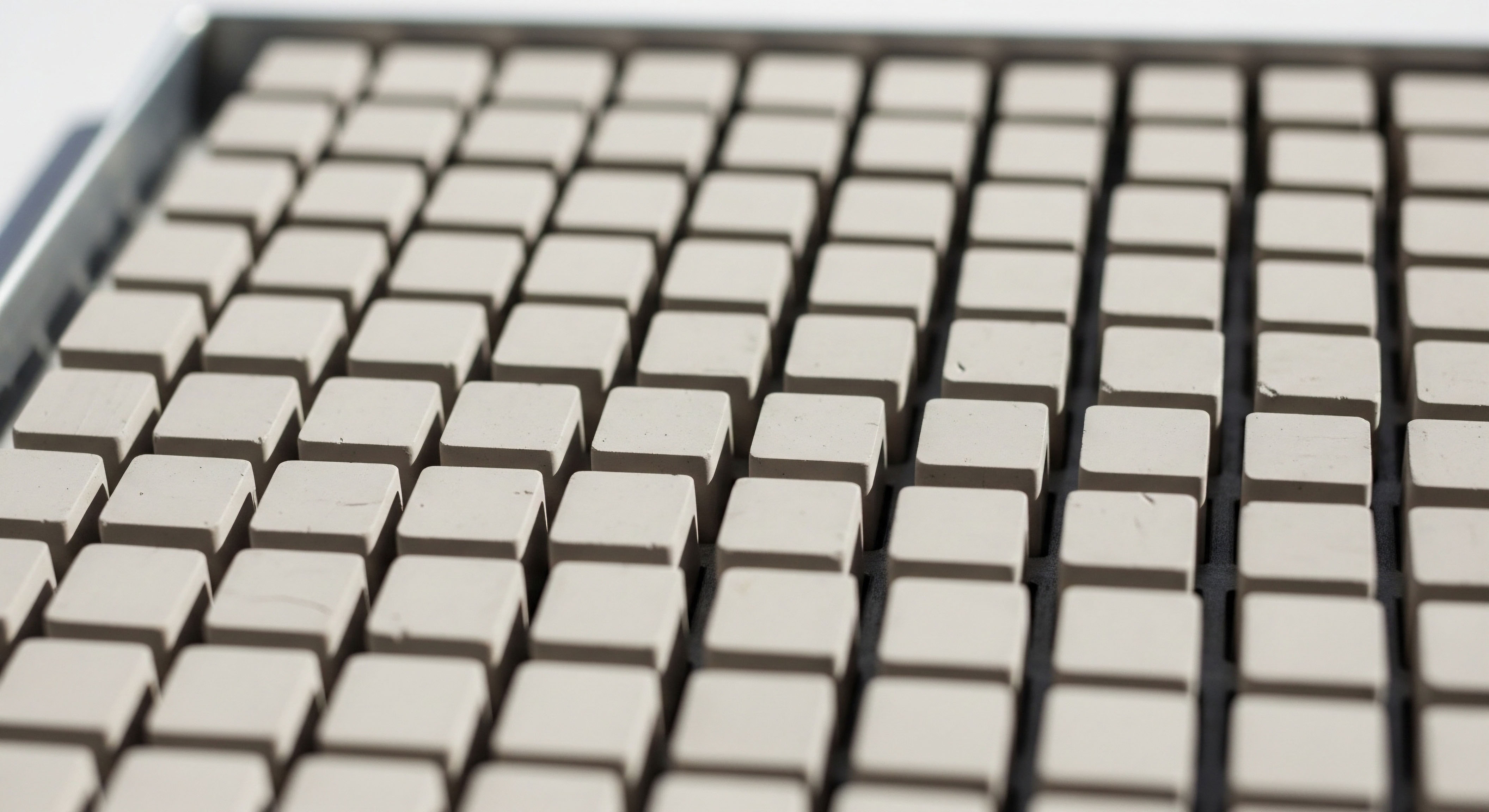

Your Untapped Biological Super-Charger
You have a nightly appointment with the most potent performance-enhancing protocol known to science. It requires no prescription, no injection, and no complex machinery. This tool is built into your biology, a nightly recalibration of your physical and cognitive systems.
We are talking about sleep, and it is time to reframe it from a passive state of rest to your most active strategy for peak performance. Many high-achievers treat sleep as a necessary evil, a debt to be paid after a long day of work. This view is outdated. It is the equivalent of owning a high-performance vehicle and only ever driving it in first gear.
Consider that men who get just five to six hours of sleep per night can have the testosterone levels of someone a decade older. This is not a subtle shift. It is a fundamental alteration of your hormonal architecture, the very system that governs your drive, your vitality, and your ability to build and maintain muscle.
Every hour of missed sleep is an hour of lost potential. You are not just tired; you are actively down-regulating the systems that make you sharp, strong, and resilient.
Sleep is not merely rest; it is a potent hormonal and cognitive recalibration that dictates your physical and mental output.
The conversation around performance optimization often centers on complex interventions, yet the most foundational element is frequently overlooked. Your body has a built-in system for cellular repair, memory consolidation, and hormonal regulation. This system is called sleep.
It is during this period that your body produces crucial hormones like growth hormone and melatonin, which are vital for recovery and immune function. By architecting your sleep, you are taking direct control of these powerful biological processes. You are moving from a passive recipient of your body’s nightly processes to an active participant in your own upgrade.


Architecting Your Nightly Upgrade
Viewing sleep as a performance drug requires a shift in perspective. It is an active, not a passive, process. The quality of your sleep determines the effectiveness of this nightly recalibration. You can architect your sleep for maximum benefit by focusing on a few key protocols.
This is not about simply getting more sleep; it is about getting better, more efficient sleep. Think of it as upgrading the software that runs your biological hardware. A few key adjustments can yield significant returns in your daily performance.

The Four Pillars of Sleep Architecture
These four pillars form the foundation of a robust sleep strategy. Each one addresses a different aspect of your sleep environment and internal biology. By addressing all four, you create a powerful synergy that enhances the restorative power of your sleep. This is about creating a system that works for you, night after night.

1. Light Discipline
Your body’s internal clock, or circadian rhythm, is primarily regulated by light exposure. Bright light in the morning signals your body to be alert and active. Conversely, exposure to bright light, especially blue light from screens, in the evening can suppress the production of melatonin, the hormone that signals it is time to sleep.
To optimize your sleep, you must be disciplined about your light exposure. This means seeking out bright light in the morning and minimizing it in the hours before bed. This simple act can have a profound impact on your ability to fall asleep and the quality of your sleep.

2. Temperature Regulation
Your body temperature naturally drops as you prepare for sleep. A cooler sleeping environment facilitates this process, making it easier to fall asleep and stay asleep. The ideal temperature for sleep is typically between 60 and 67 degrees Fahrenheit. A warm bath or shower before bed can also help, as the subsequent drop in body temperature can trigger the onset of sleep. Think of your bedroom as a sleep cave ∞ cool, dark, and quiet.

3. Nutritional Timing
What and when you eat can have a significant impact on your sleep. Large meals close to bedtime can disrupt sleep by causing indigestion and raising your body temperature. Caffeine and alcohol are also major culprits. Caffeine has a half-life of several hours, meaning that a cup of coffee in the afternoon can still be affecting you at bedtime.
While alcohol may make you feel sleepy initially, it disrupts the second half of your sleep, leading to a less restorative night.

4. Stress Decompression
You cannot expect to go from a high-stress state to a state of deep sleep in an instant. You need a buffer zone, a period of decompression to signal to your body that it is time to wind down. This can be anything from reading a book to meditation to light stretching.
The key is to find a relaxing activity that you can do consistently every night. This routine will become a powerful signal to your brain that it is time to prepare for sleep.
- Morning Sunlight Exposure ∞ Get at least 10-15 minutes of direct sunlight within the first hour of waking.
- Evening Light Restriction ∞ Avoid bright overhead lights and screens for at least an hour before bed.
- Cool Sleeping Environment ∞ Keep your bedroom temperature between 60-67°F (15-19°C).
- Consistent Sleep Schedule ∞ Go to bed and wake up at the same time every day, even on weekends.
- Mindful Nutrition ∞ Avoid heavy meals, caffeine, and alcohol in the hours leading up to bedtime.


The Tangible Returns on Your Investment
The dividends of architecting your sleep are not abstract or long-term. They are tangible, measurable, and often immediate. You will notice the effects in every aspect of your life, from your physical performance to your cognitive clarity. This is not about some distant future benefit; it is about enhancing your life right now. The return on your investment in sleep is a daily upgrade in your ability to perform at your peak.

Immediate Performance Enhancements
Within days of implementing a structured sleep protocol, you can expect to see improvements in your physical and cognitive performance. Studies have shown that even a single night of adequate sleep can improve reaction time, accuracy, and endurance. Athletes who get sufficient sleep have been shown to have faster sprint times, better shooting accuracy, and a lower risk of injury. These are not marginal gains; they are significant improvements that can give you a competitive edge in any field.

Cognitive and Emotional Recalibration
The benefits of optimized sleep extend beyond the physical. Your brain does some of its most important work while you sleep. It consolidates memories, clears out metabolic waste products, and regulates the emotional centers of your brain. When you are sleep-deprived, your ability to learn, problem-solve, and regulate your emotions is significantly impaired.
By prioritizing sleep, you are ensuring that your brain has the resources it needs to function at its highest level. You will find yourself more focused, more creative, and more emotionally resilient.
A mere one-hour increase in nightly sleep can reduce the risk of athletic injury by over 60%.
The long-term benefits of a consistent sleep practice are even more profound. Chronic sleep deprivation is linked to a host of health problems, including cardiovascular disease, diabetes, and obesity. By investing in your sleep now, you are investing in your long-term health and vitality. You are building a foundation of resilience that will serve you for years to come. This is the ultimate form of proactive health optimization.

The Agency of Rest
To view sleep as a performance drug is to reclaim your agency over a fundamental aspect of your biology. It is a declaration that you are not a passive victim of your schedule or your stress levels. You are the architect of your own vitality.
The principles outlined here are not just about sleeping more; they are about sleeping smarter. They are about transforming a biological necessity into a strategic advantage. The choice is yours. You can continue to treat sleep as an afterthought, or you can start to wield it as the powerful performance-enhancing tool that it is.

Glossary

performance optimization

hormonal regulation

growth hormone

melatonin

circadian rhythm




